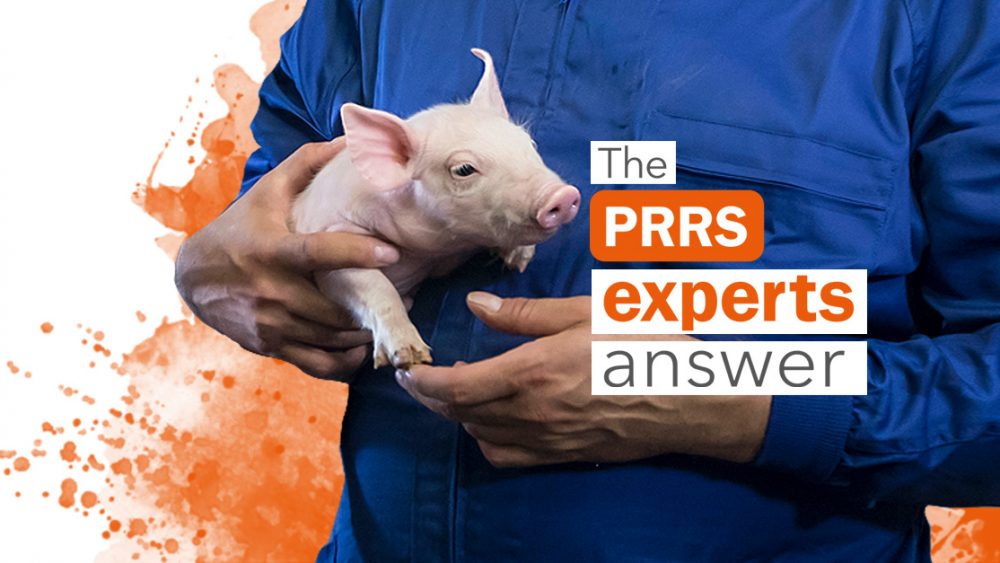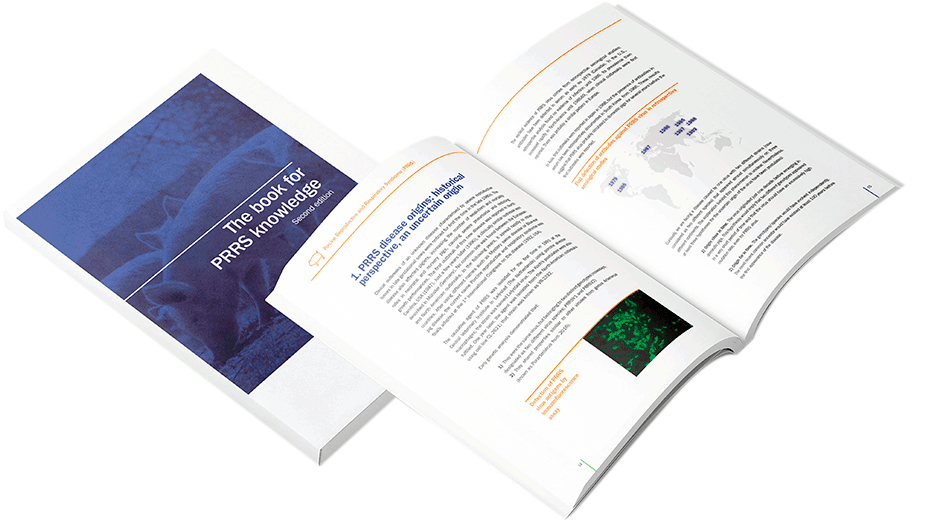This a very complex question requiring a detailed answer.
The development of neutralizing antibodies to PRRSV depends on several factors, among others the strain of the virus but also the idiosyncrasy of the pig.
Attenuated strains usually produce less neutralizing antibodies than less attenuated ones but this cannot be precisely forecasted.
Besides this, when the development of neutralizing antibodies is examined in a group of animals the diversity of titers can be high.
An additional factor is that the neutralizing efficacy of the antibodies induced by one PPRSV strain against a different one cannot be forecasted neither.
Maternally-derived antibodies will give the piglet some level of passive immunity against PRRSV although, again, this will vary based on the level of the immunity of the sow and the colostrum intake of the piglet.
In summary, the offspring of well-immunized sows can be expected to have some levels of neutralizing antibodies against the PRRSV vaccine strain and, if the sows were infected by a wild-type strain, against the farm strain.
To what extent those neutralizing antibodies will interfere is a matter of debate.
Maternally derived antibodies & PRRSV vaccination
According to Fablet et al. (2018) maternally-derived antibodies (MDA) impair piglets’ responses to vaccination.
The average titer of neutralizing antibodies at vaccination was 1:128 and animals were vaccinated at 3 weeks of age. The piglets of that study were the offspring of the sows with the highest antibody titers in the herd.
In summary, as a general concept MDA may interfere with the vaccination of piglets at early ages; however the precise practical significance of this interference in a given farm is difficult to say since not all sows will produce those high titers and the circulation of the PRRSV may occur at different time points.
To learn more about this topic, visit chapter 5: “Immunisation of piglets” of this site.
You can ask your own question! Visit Pig333.com and submit your question to the experts.

Centre for Research on Animal Health (CReSA), Barcelona University (UAB) – Spain




